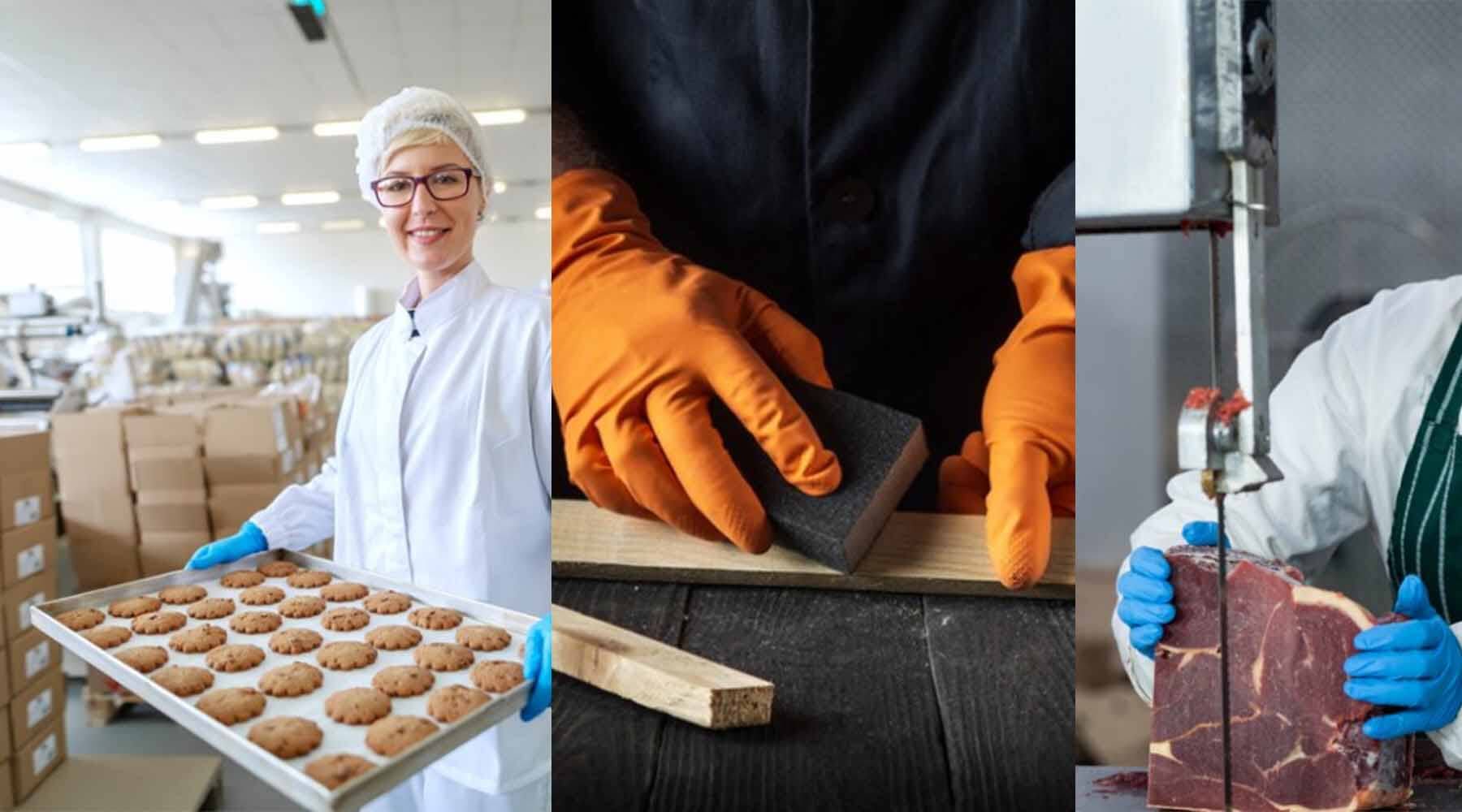
The Disposable Gloves used in Different Industries
Disposable gloves are used for multiple purposes, from food preparation, to medical and healthcare, to automotive. It’s very important to know which type of gloves are best suited for any specific purpose. Here’s a look at the main types of gloves and the different industries that use them.
Latex Gloves
Latex gloves are used in the medical and dental fields. Latex gloves are also commonly used for janitorial work, beauty services, child care, safe chemical handling, plumbing and painting. Latex gloves offer the best fit and dexterity and they are more comfortable for longer wear. The primary reason industries would choose an alternative to latex is because some people have latex allergies. When allergy is not a concern, latex has a slight advantage with comfort and dexterity over nitrile and vinyl gloves.
Nitrile Gloves
Around eighty percent of the disposable gloves used in the automotive industry are nitrile because they offer superior puncture resistance and barrier protection against a variety of harsh chemicals. Nitrile gloves are also becoming more popular in the medical and dental fields because of the growing prevalence of latex allergies. Nitrile gloves make for a comfortable fit as they have great shape conformity. Nitrile as a substance has very high resistance to chemicals and can provide excellent skin protection.
Vinyl Gloves
Vinyl gloves are used in many industries, including food handling, medical, janitorial, and sanitation. As more food service and processing workers use gloves during food preparation, vinyl glove usage is taking off. Vinyl is synthetic and contains no latex from natural rubber so they don’t cause allergies. Vinyl has a smooth surface, and they conform well to the shape of the hand despite having a looser fit as compared to nitrile or latex glove.
Polyethylene Gloves
Polyethylene gloves are the most cost-effective choice for the food industry. Polyethylene gloves are a great solution for food safety, as it provides a barrier between food and the bare skin. Combined with proper hand washing practices, they assist in maintaining a hygienic environment free from food-borne illnesses. Polyethylene gloves are perfect for food preparation and handling because of their loose fit, which makes it easier to have frequent glove changes. They have a more enhanced grip and are easier to put on and take off.
Workers should be able to perform their duties without fear of encountering hazardous materials. Biological contaminants are common risk factors in some industries, while in others, the risk factors involve chemicals, sharp objects, or extreme temperatures. In some industries, such as food service, it’s the customer who needs protection from bacteria and viruses from food handlers. For safety, it is important for workers to use disposable gloves and have an ample supply ready. Disposable gloves provide protection to workers in many industries. From inexpensive gloves for food preparation, to highly specialized gloves to protect those working in the chemical or healthcare industries, disposable gloves have many varied applications. There have been many technological advances that made disposable gloves stronger, and these new advances has made them more cost-effective especially when purchased in bulk.
Leave a comment